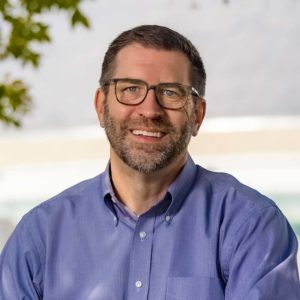What’s the church for?

Daily Scripture
Ephesians 3:5-10, 20-21
5 Earlier generations didn’t know this hidden plan that God has now revealed to his holy apostles and prophets through the Spirit. 6 This plan is that the Gentiles would be coheirs and parts of the same body, and that they would share with the Jews in the promises of God in Christ Jesus through the gospel. 7 I became a servant of the gospel because of the grace that God showed me through the exercise of his power.
8 God gave his grace to me, the least of all God’s people, to preach the good news about the immeasurable riches of Christ to the Gentiles. 9 God sent me to reveal the secret plan [or mystery] that had been hidden since the beginning of time by God, who created everything. 10 God’s purpose is now to show the rulers and powers in the heavens the many different varieties of his wisdom through the church.
20 Glory to God, who is able to do far beyond all that we could ask or imagine by his power at work within us; 21 glory to him in the church and in Christ Jesus for all generations, forever and always. Amen.
Daily Reflection & Prayer
Often today, we think the word “church” refers to a building or set of buildings, or more abstractly, a legal entity like a denomination. But in the New Testament, “church” (Greek ekklēsia) meant “people gathered together.” The references to God’s power in verses 7 and 20 used the Greek word dunamis, the root of the word “dynamite”! There’s nothing static or boring about that. God’s purpose is for that power to show “the many different varieties of his wisdom through the church” (verse 10).
- Over 100 times the New Testament used the Greek word ekklesia (“church”), nearly always for a group of people dedicated to serving and sharing God. Resurrection’s purpose statement says, “Our Purpose is to build a Christian community…” Buildings, locations (physical or online), and guiding policies are only tools calling people to join in God’s powerful mission, not an end in themselves. Why must we always remember that, ultimately, “church” is about people?
- The Greek word translated “the many different varieties of his wisdom” in verse 10 was “polupoikilos.” It literally meant “many colored”—as though the apostle envisioned God’s grace and wisdom as a kind of dazzling rainbow. In what ways has God’s grace and wisdom added color and beauty to your life? How can you take part in helping your church reflect that divine beauty to every person we connect with?
Prayer
Lord Jesus, I want to understand your purpose and direction for my church, and for me as faithful citizen of your kingdom. Keep my mind and heart open to your leading. Amen.
GPS Insights

Dan Enwistle
Dan Entwistle serves as a Managing Executive Director for Church of the Resurrection.
(This post is slightly adapted from one Dan wrote for us in 2019.)
In Luke 19:1-10, we meet a man named Zacchaeus who couldn’t see. He wasn’t blind, but he couldn’t see. As the story goes, Zacchaeus was a “vertically challenged” guy standing on the outside of society. He simply couldn’t see Jesus over the heads of the crowd. All he could see was the back of the heads of the people in front of him.
Last weekend, our church reviewed a series of four bold focus areas, first launched in 2019, under the umbrella idea of Closing the Gap. These four goals will continue to shape and clarify our next seven years of ministry. We’ve called this our church’s Vision 2030. But why do we tend to use the word “vision” to describe an ambitious set of organizational objectives? And why do we refer to some people as visionaries?
I think of a visionary as someone who has a mental picture how things will be, or should be, in the future. Visionaries tend to see things sooner and more clearly than others. Zacchaeus became a visionary. But when we first met Zacchaeus, he could only see the backs of the heads in front of him. He became a visionary by changing his perspective.
We, too, sometimes have blocked vision. We see a world with daunting and intractable problems—increasing secularization, strife and polarization, churches focusing inward to serve the needs of existing members, and children in another part of the city we can’t help. But that’s an obscured, blocked vision.
Zacchaeus, today, is calling us to climb a tree. So let’s climb with him to a higher vantage point. Let’s imagine the world the way God intends it to be and keep imagining our church making a tangible, dramatic difference—closing the spiritual gap, closing the generational gap, closing the justice and kindness gap, and closing the opportunity gap. The first step is an unexpected one—climbing to see what God has in store.
Suffering from back-of-the-head vision? Wondering what God has in store that we cannot yet see? Let’s move ahead toward Vision 2030 with optimism, asking God to grant us a new perspective, full of possibility and promise. Let’s climb with Zacchaeus to see the world from a new vantage point.
© 2024 Resurrection: A United Methodist Church. All Rights Reserved.
Scripture quotations are taken from The Common English Bible ©2011. Used by permission. All rights reserved.
References
* Click here to view or review Resurrection’s full purpose, vision and journey statements.
